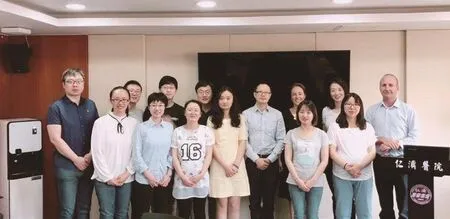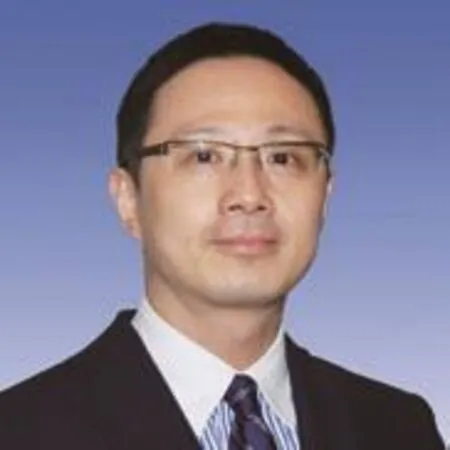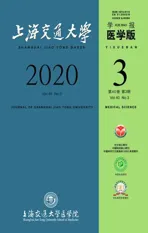特约创新团队介绍
2020-04-15


团队负责人介绍
沈南 SHEN Nan
教授、主任医师、博士生导师
MD, Ph.D, Professor, Chief Physician, Doctoral Supervisor ORCID ID:0000-0002-5875-4417
创新团队名称
自身免疫病精准诊治新策略研究
团队主要成员
沈南(研究员/博士) 黄传新(研究员/博士) 李福彬(研究员/博士)余迪(研究员/博士) 唐元家(研究员/博士) 扶琼(副主任医师/博士)周海波(副研究员/博士) 邓军(副研究员/博士) 曲波(副研究员/博士)
沈南(1965—),国家“973”计划首席科学家,上海交通大学特聘教授。1988年毕业于上海交通大学医学院(原上海第二医科大学),2012年获得荷兰阿姆斯特丹大学博士学位。1998—1999年在美国加州大学洛杉矶分校进行访问研究。现任上海市风湿病学研究所所长、上海交通大学医学院附属仁济医院风湿科主任、中澳个体化自身免疫病研究中心主任。现任上海市医学会风湿病分会副主委、全国临床免疫学会委员、上海免疫学会副理事长、上海免疫学会风湿免疫专业委员会主任委员、Faculty of 1000专家成员、美国风湿病学会策划委员会委员(亚太地区唯一委员)、亚太地区风湿病学联盟科学顾问委员会委员、国际红斑狼疮遗传学研究协作组成员。目前担任Arthritis and Rheumatology、Arthritis Research & Therapy、International Journal of Rheumatic Diseases杂志副主编,Annals of Rheumatic Diseases、Clinical Immunology、Clinical Rheumatology杂志编委,系统性红斑狼疮权威教科书 Dubois' Lupus Erythematosus and Related Syndromes(Eighth edition)副主编。
沈南教授长期致力于系统性红斑狼疮的发病机制和特异性干预治疗等科研工作,取得了多项突破性研究成果。承担多项国家级及省部级科研任务,主持国家 “973”计划项目1项、国家“863”计划项目1项、国家自然科学基金重点项目3项、上海市科委重点项目2项,并得到上海市领军人才等人才项目支持。
SHEN Nan(1965—), “973 Program” chief scientist, distinguished professor of Shanghai Jiao Tong University. Prof. SHEN graduated from Shanghai Jiao Tong University School of Medicine in 1988 and received his doctorate from University of Amsterdam in Netherlands in 2012. He was a visiting researcher at University of California, Los Angeles from 1998 to 1999. He is director of Shanghai Institute of Rheumatology, director of Department of Rheumatology of Renji Hospital, Shanghai Jiao Tong University School of Medicine, and co-executive director of China-Australia Centre for Personalized Immunology. Currently, he is vice-chairman of the rheumatology branch of Shanghai Medical Association, a member of National Clinical Immunology Society, vice-chairman of Shanghai Immunology Society, chairman of Professional Committee of Rheumatology of Shanghai Immunology Society, a member of Planning Committee of ACR Annual Meeting (the only member in the Asia-Pacific region), a faculty member of Faculty of 1 000, a member of Scientific Advisory Board of Asia Pacific League of Associations for Rheumatology, and a member of International Collaborative Group on Lupus Genetics. He is currently an associate editor of Arthritis and Rheumatology, Arthritis Research & Therapy, International Journal of Rheumatic Diseases, and an editorial board member of Annals of Rheumatic Diseases, Clinical Immunology, and Clinical Rheumatology, and he is deputy editor of an authoritative textbook on systemic lupus erythematosus—Dubois' Lupus Erythematosus and Related Syndromes (Eighth edition).
Prof. SHEN is focusing on the pathogenesis and specific intervention therapy of systemic lupus erythematosus and has made significant progress in this field. He is responsible for several scientific research tasks at the national and provincial levels, among which he presides one “973” Program, one “863” Project, three key projects of National Natural Science Foundation of China and two key projects of Shanghai Municipal Science and Technology Commission. He was supported by Shanghai's Leading Talent Program.
主要研究方向
沈南教授研究组在国际上率先解析多个非编码RNA在系统性红斑狼疮关键指标通路中的重要调控作用及其与重要靶器官受累的关系,取得了丰硕的研究成果,受到了国际同行的广泛关注和认可。在Nature Medicine、Nature Genetics、Immunity、Plos genetics、Blood、PNAS等国际著名学术期刊上发表SCI论文100余篇,被引用8 800余次, h指数为46;其中9篇论文在风湿病学最有影响力的杂志上发表,4篇同刊同期附有特约评论,3篇被Faculty of 1000收录并评述4次。
Prof. SHEN 's research group was the first to analyze the role of several non-coding RNAs in the pathogenesis of systemic lupus erythematosus and their relationship with the involvement of important target organs. Prof. SHEN 's group has made important progress in systemic lupus erythematosus. The group has published more than 100 papers in Nature Medicine, Nature Genetics, Immunity, PLoS Genetics, Blood, PNAS,etc, with a total citation of more than 8 800 times and h-index of 46, Nine of these papers were published in the most influential journals of rheumatology, four papers were featured in the same issue, and three were included in Faculty of 1 000 and reviewed for four times.
近2年代表性成果
1) Li G, Ding H, Yu X, et al. Spermidine suppresses inflammatory DC function by activating the FOXO3 pathway and counteracts autoimmunity[J].iScience, 2020, 23(1):100807.
2) Zhang W, Zhang H, Liu S, et al. Excessive CD11c+Tbet+B cells promote aberrant TFH differentiation and affinity-based germinal center selection in lupus[J]. Proc Nat Acad Sci, 2019, 116(37): 18550-18560.
3) Liu CX, Li X, Nan F, et al. Structure and degradation of circular RNAs regulate PKR activation in innate immunity[J]. Cell, 2019, 177(4): 865-880.
4) Wu C, Fu Q, Guo Q, et al. Lupus-associated atypical memory B cells are mTORC1-hyperactivated and functionally dysregulated[J]. Ann Rheum Dis,2019, 78(8): 1090-1100.
5) Wang J, Dai M, Cui Y, et al. Association of abnormal elevations in IFIT3 with overactive cyclic GMP-AMP synthase/stimulator of interferon genes signaling in human systemic lupus erythematosus monocytes[J]. Arthr Rheum, 2018, 70(12): 2036-2045.
6) Deng J, Fan C, Gao X, et al. Signal transducer and activator of transcription 3 hyperactivation associates with follicular helper T cell differentiation and disease activity in rheumatoid arthritis[J]. Front Immunol, 2018, 9: 1226.
7) Zeng J, Meng X, Zhou P, et al. Interferon-α exacerbates neuropsychiatric phenotypes in lupus-prone mice[J]. Arthr Res Ther, 2019, 21(1): 205.
8) Deng J, Wei Y, Fonseca VR, et al. T follicular helper cells and T follicular regulatory cells in rheumatic diseases[J]. Nat Rev Rheumatol, 2019,15(8): 475-490.
